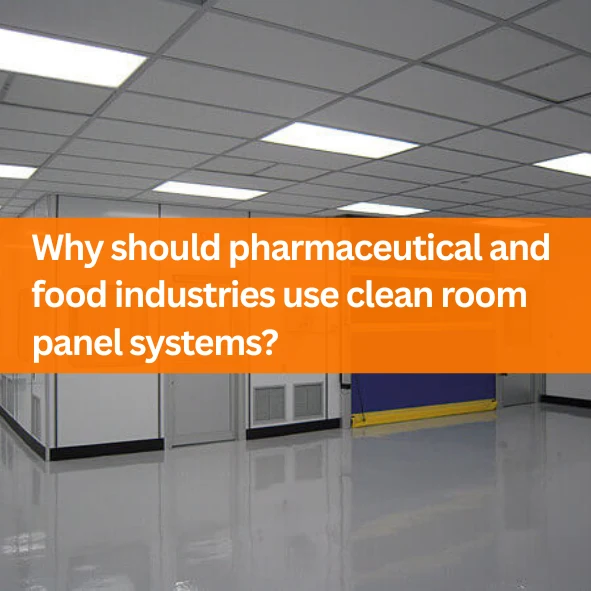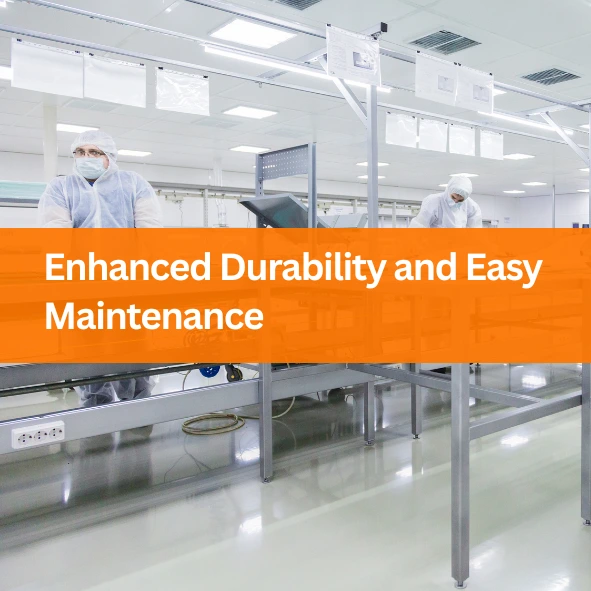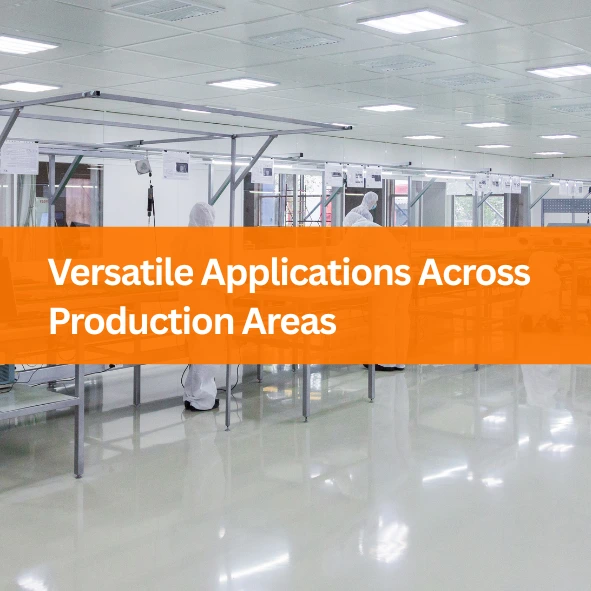
In industries like pharmaceuticals and food processing, maintaining hygiene and preventing contamination are top priorities. Even the slightest impurity can compromise product quality, safety, and brand reputation. This is where Clean Room Panel Systems play a vital role. Designed to create controlled environments, these systems ensure that manufacturing and packaging areas meet strict regulatory standards for cleanliness, air quality, and temperature control.
Let’s explore why pharmaceutical and food industries rely heavily on clean room panel systems and how they help improve operational efficiency, safety, and compliance.
Maintaining Strict Hygiene and Contamination Control
Pharmaceutical and food facilities must maintain an ultra-clean environment to avoid contamination by dust, microbes, and chemical residues. Clean room panels, made from materials like PUF (Polyurethane Foam), PIR (Polyisocyanurate), or EPS (Expanded Polystyrene), provide airtight sealing and smooth surfaces that prevent microbial growth and dust accumulation.
Their non-porous, easy-to-clean surfaces ensure that bacteria and other contaminants cannot penetrate or settle. This makes them ideal for facilities where hygiene is not just a standard but a legal requirement.
Ensuring Regulatory Compliance
Both industries operate under stringent national and international regulations such as WHO-GMP, FDA, ISO 14644, and HACCP. Non-compliance can lead to production shutdowns, legal penalties, or product recalls.
Clean Room Panel Systems are engineered to meet these global standards by providing:
Controlled temperature and humidity levels
Proper airflow management
Seamless surfaces that reduce contamination risks
Compatibility with HEPA filtration and HVAC systems
By integrating clean room panels, companies can easily pass audits and maintain a globally compliant production facility.
Temperature and Air Quality Control
Temperature and humidity fluctuations can affect product quality, especially in pharmaceuticals and food items that are sensitive to moisture or heat. Clean room panel systems have excellent insulation properties that maintain stable internal temperatures and minimize energy consumption.
These panels also support advanced air filtration systems that control particle levels and ensure clean air circulation — a must for sterile environments like medicine formulation areas or dairy product packaging units.
Enhanced Durability and Easy Maintenance

Clean room panels are designed for long-term durability. They resist corrosion, chemicals, and impact, which is crucial for industries that involve frequent cleaning with disinfectants and chemical agents.
Their modular construction also allows for easy replacement or reconfiguration without disrupting operations. Moreover, the panels require minimal maintenance — just routine cleaning and inspection — ensuring consistent performance for years.
Quick and Efficient Installation
Modern clean room panel systems are modular and prefabricated, which means they can be quickly installed, expanded, or relocated with minimal downtime. This flexibility helps industries adapt to production changes or new product lines without extensive remodeling.
For pharmaceutical and food plants that operate round-the-clock, minimizing downtime during expansion or maintenance is a major operational advantage.
Energy Efficiency and Cost Savings
Energy costs account for a significant portion of operational expenses in clean environments. PUF and PIR clean room panels provide superior thermal insulation, reducing the load on air conditioning systems.
By maintaining stable internal conditions and reducing heat transfer, these panels enhance energy efficiency and help companies lower long-term operational costs. They also contribute to sustainable manufacturing by reducing energy waste and carbon footprint.
Improved Aesthetic and Professional Appearance
In addition to functional benefits, clean room panel systems offer a modern and professional appearance. The smooth, glossy finish gives production areas a high-tech, hygienic look, which is especially important when clients, auditors, or regulatory officials visit the facility.
A clean and organized environment reflects a company’s commitment to quality, safety, and excellence.
Versatile Applications Across Production Areas

Clean room panel systems are not limited to one type of application. They are widely used in:
Pharmaceutical formulation rooms
Packaging and labeling units
Food processing and cold storage areas
Laboratories and testing zones
Clean corridors and controlled warehouses
This versatility makes them an ideal solution for multiple stages of production where cleanliness and control are crucial.
Supporting Sustainable Manufacturing
Sustainability has become a major focus in modern industry. Clean room panels are often made using eco-friendly materials and can be recycled at the end of their life cycle. Their energy efficiency and low maintenance requirements also contribute to greener operations, helping companies align with global environmental standards.
Conclusion
For the pharmaceutical and food industries, Clean Room Panel Systems are not just an infrastructure investment—they are an essential component of product integrity, safety, and compliance. These systems create controlled, sterile environments that protect products from contamination, improve energy efficiency, and simplify regulatory compliance.
By choosing high-quality, clean-room panels from trusted manufacturers, companies can ensure long-term operational reliability, enhance brand trust, and deliver products that meet the highest standards of hygiene and safety.
Frequently Asked Questions
Clean-room panel systems are modular wall/floor/ceiling panels—commonly made of materials like PUF (polyurethane foam), PIR (polyisocyanurate), or EPS (expanded polystyrene)—used to construct controlled-environment rooms. They provide smooth, sealed, non-porous surfaces, insulation, and compatibility with HVAC/HEPA filtration systems.
According to the article, they’re suitable for:
*Pharmaceutical formulation rooms
*Packaging and labelling units
*Food processing and cold storage areas
*Laboratories and testing zones
*Clean corridors and controlled warehouses
Yes. Because they provide superior insulation, they reduce thermal load on HVAC systems which leads to lower energy consumption. Also modularity means less downtime and easier adaptations, and minimal maintenance further reduces long-term costs.
They help by enabling controlled temperature/humidity levels, proper airflow management, seamless surfaces that reduce contamination risk, and compatibility with HEPA filtration and HVAC systems.
This supports meeting standards such as GMP (World Health Organization-GMP), Food and Drug Administration (FDA) regulations, International Organization for Standardization ISO 14644, HACCP, etc



